-
Executive Summary
-
Scope of the Report
-
Market
-
Definition
-
Scope of the Study
-
List of Assumptions
-
Markets Structure
-
Market Research Methodology
-
Research Process
-
Primary Research
-
Secondary Research
-
Market Size Estimation
-
Forecast Model
-
Market Factor Analysis
-
Supply Chain Analysis
- Raw Material Suppliers
- Manufacturers/Service Providers of Non-Metallurgical
- End-Users
-
Alumina
-
Distributors/Retailers/Wholesalers/E-Commerce Merchants
-
Porter’s Five Forces Model
- Threat of New Entrants
- Intensity
- Threat of Substitutes
- Bargaining Power of Suppliers
- Bargaining Power of Buyers
-
of Competitive Rivalry
-
Pricing Analysis
-
Market Dynamics
-
of Global Non-Metallurgical Alumina Market
-
Introduction
-
Drivers
-
Restraints
-
Opportunities
-
Challenges
-
Global Non-Metallurgical Alumina Market, by Type
-
Introduction
-
Calcined Alumina
- Market Estimates
- Market Estimates & Forecast, by Region, 2019–2030
-
& Forecast, 2019–2030
-
Alumina Trihydrate
- Market Estimates &
- Market Estimates & Forecast, by Region, 2019–2030
-
Forecast, 2019–2030
-
Global Non-Metallurgical
-
Alumina Market, by Application
-
Introduction
-
Refractories
- Market Estimates & Forecast, 2019–2030
- Market Estimates &
-
Forecast, by Region, 2019–2030
-
Abrasives
- Market Estimates & Forecast, 2019–2030
- Market Estimates
-
& Forecast, by Region, 2019–2030
-
Ceramics
- Market Estimates & Forecast, 2019–2030
- Market Estimates
-
& Forecast, by Region, 2019–2030
-
Aluminum Sulphate
- Market Estimates & Forecast, 2019–2030
- Market Estimates
-
& Forecast, by Region, 2019–2030
-
ATH Fire Retardant
- Market Estimates & Forecast, 2019–2030
- Market Estimates
-
& Forecast, by Region, 2019–2030
-
Others
- Market Estimates & Forecast, 2019–2030
- Market Estimates
-
& Forecast, by Region, 2019–2030
-
Global Non-Metallurgical Alumina Market, by Region
-
Introduction
-
North America
- Market Estimates
- Market Estimates & Forecast, by Type, 2019–2030
- Market Estimates
- US
-
& Forecast, 2019–2030
-
& Forecast, by Application, 2019–2030
-
& Forecast, by Type, 2019–2030
-
Canada
-
Market Estimates & Forecast, 2019–2030
-
Market Estimates & Forecast, by Application, 2019–2030
-
Europe
- Market Estimates &
- Market Estimates & Forecast, by Type, 2019–2030
- Market Estimates
- Germany
-
Forecast, 2019–2030
-
& Forecast, by Application, 2019–2030
-
& Forecast, by Type, 2019–2030
-
France
-
Market Estimates & Forecast, 2019–2030
-
Market Estimates & Forecast, by Application, 2019–2030
-
Forecast, 2019–2030
-
& Forecast, by Application, 2019–2030
-
& Forecast, by Type, 2019–2030
-
UK
-
Market Estimates & Forecast, 2019–2030
-
Italy
-
Market Estimates &
-
Market Estimates & Forecast, by Type, 2019–2030
-
Market Estimates
-
Spain
-
Market Estimates & Forecast, 2019–2030
-
Market Estimates
-
Market Estimates & Forecast, by Application,
-
Market Estimates & Forecast, by Type,
-
Market Estimates & Forecast, by Application, 2019–2030
-
Forecast, 2019–2030
-
& Forecast, by Application, 2019–2030
-
& Forecast, by Type, 2019–2030
-
Asia-Pacific
-
Market Estimates & Forecast, 2019–2030
-
Russia
-
Market Estimates &
-
Market Estimates & Forecast, by Type, 2019–2030
-
Market Estimates
-
Rest of Europe
-
Market Estimates & Forecast, 2019–2030
-
Market Estimates
-
Market Estimates & Forecast, by Application,
-
Market Estimates & Forecast, by Type,
-
Market Estimates & Forecast, by Application, 2019–2030
-
Forecast, 2019–2030
-
& Forecast, by Application, 2019–2030
-
& Forecast, by Type, 2019–2030
-
Japan
-
Market Estimates & Forecast, 2019–2030
-
China
-
Market Estimates &
-
Market Estimates & Forecast, by Type, 2019–2030
-
Market Estimates
-
India
-
Market Estimates & Forecast, 2019–2030
-
Market Estimates
-
Market Estimates & Forecast, by Application,
-
Market Estimates & Forecast, by Type,
-
Market Estimates & Forecast, by Application, 2019–2030
-
Forecast, 2019–2030
-
& Forecast, by Application, 2019–2030
-
& Forecast, by Type, 2019–2030
-
Latin America
-
Market Estimates & Forecast, 2019–2030
-
Indonesia
-
Market Estimates &
-
Market Estimates & Forecast, by Type, 2019–2030
-
Market Estimates
-
Rest of Asia-Pacific
-
Market Estimates & Forecast, 2019–2030
-
Market Estimates
-
Market Estimates & Forecast, by Application,
-
Market Estimates & Forecast, by Type,
-
Market Estimates & Forecast, by Application, 2019–2030
-
Forecast, 2019–2030
-
& Forecast, by Application, 2019–2030
-
& Forecast, by Type, 2019–2030
-
Rest of Latin America
-
Market Estimates & Forecast, 2019–2030
-
Brazil
-
Market Estimates &
-
Market Estimates & Forecast, by Type, 2019–2030
-
Market Estimates
-
Mexico
-
Market Estimates & Forecast, 2019–2030
-
Market Estimates
-
Market Estimates & Forecast, by Application,
-
Market Estimates & Forecast, by Type,
-
Market Estimates & Forecast, by Application, 2019–2030
-
Middle East & Africa
-
& Forecast, 2019–2030
-
& Forecast, by Application, 2019–2030
-
& Forecast, by Type, 2019–2030
-
GCC
-
Market Estimates & Forecast, 2019–2030
-
Market Estimates
-
Market Estimates & Forecast, by Type, 2019–2030
-
Market Estimates
-
South Africa
-
Market Estimates & Forecast, 2019–2030
-
Market Estimates
-
Market Estimates & Forecast, by Application,
-
Market Estimates & Forecast, by Type,
-
Market Estimates & Forecast, by Application, 2019–2030
-
& Africa
-
Market Estimates & Forecast, 2019–2030
-
Rest of the Middle East
-
Market Estimates & Forecast, by Type,
-
Market Estimates & Forecast, by Application, 2019–2030
-
Competitive Landscape
-
Introduction
-
Market Key Strategies
-
Competitive Benchmarking
-
Key Development Analysis
-
(Expansions/Mergers & Acquisitions/Joint Ventures/New Non-Metallurgical Alumina
-
Developments/Agreements/Investments)
-
Company Profiles
-
Alcoa Corporation
- Company Overview
- Financial Overview
- Products Offered
- Key Developments
- SWOT Analysis
- Key Strategies
-
Almatis Gmbh
-
Alteo Alumina
-
Alumina D.O.O – Zvornik
-
Dadco Alumina and Chemicals
-
Limited
-
Hindalco Industries Ltd
-
Aluminum Corporation of China Limited
-
Atlantic Alumina Company (ATALCO)
-
RUSAL
-
PT Indonesia Chemical
-
Alumina (ICA)
-
Appendix
-
LIST
-
OF TABLES
-
Table
-
1: Global Non-Metallurgical Alumina Market, by region, 2019–2030
-
Table 2: North America:
-
Non-Metallurgical Alumina Market, by Country, 2019–2030
-
Table 3: Europe: Non-Metallurgical
-
Alumina Market, by Country, 2019–2030
-
Table 4: Asia-Pacific: Non-Metallurgical Alumina
-
Market, by Country, 2019–2030
-
Table 5: Middle East & Africa: Non-Metallurgical Alumina
-
Market, by Country, 2019–2030
-
Table 6: Latin America: Non-Metallurgical Alumina Market,
-
by Country, 2019–2030
-
Table 13: Global Non-Metallurgical Alumina Type Market, by Region,
-
Table
-
14: North America: Non-Metallurgical Alumina Type Market, by Country, 2019–2030
-
Table 15: Europe: Non-Metallurgical
-
Alumina Type Market, by Country, 2019–2030
-
Table 16: Asia-Pacific: Non-Metallurgical Alumina
-
Type Market, by Country, 2019–2030
-
Table 17: Middle East & Africa: Non-Metallurgical Alumina
-
Type Market, by Country, 2019–2030
-
Table 18: Latin America: Non-Metallurgical Alumina Type
-
Market, by Country, 2019–2030
-
Table 19: Global Non-Metallurgical Alumina Type Market,
-
by Region, 2019–2030
-
Table 20: North America: Non-Metallurgical Alumina Type Market, by
-
Country, 2019–2030
-
Table 21: Europe: Non-Metallurgical Alumina Type Market, by Country,
-
Table
-
22: Asia-Pacific: Non-Metallurgical Alumina Type Market, by Country, 2019–2030
-
Table 23: Middle East
-
& Africa: Non-Metallurgical Alumina Type Market, by Country, 2019–2030
-
Table 24: Latin America:
-
Non-Metallurgical Alumina Type Market, by Country, 2019–2030
-
Table 25: Global Non-Metallurgical
-
Alumina Type Market, by Region, 2019–2030
-
Table 26: Global Non-Metallurgical Alumina Type Market,
-
by Region, 2019–2030
-
Table 27: North America: Non-Metallurgical Alumina Market, by Country,
-
Table
-
29: North America: Non-Metallurgical Alumina Market, by Type, 2019–2030
-
Table 30: North America:
-
Non-Metallurgical Alumina Market, by Application, 2019–2030
-
Table 31: Europe: Non-Metallurgical
-
Alumina Market, by Country, 2019–2030
-
Table 32: Europe: Non-Metallurgical Alumina Market,
-
by Type, 2019–2030
-
Table 33: Europe: Non-Metallurgical Alumina Market, by Application,
-
Table
-
34: Asia-Pacific: Non-Metallurgical Alumina Market, by Country, 2019–2030
-
Table 35: Asia-Pacific:
-
Non-Metallurgical Alumina Market, by Type, 2019–2030
-
Table 36: Asia-Pacific: Non-Metallurgical Alumina
-
Market, by Application, 2019–2030
-
Table 37: Middle East & Africa: Non-Metallurgical Alumina
-
Market, by Country, 2019–2030
-
Table 38: Middle East & Africa: Non-Metallurgical Alumina
-
Market, by Type, 2019–2030
-
Table 39: Middle East & Africa: Non-Metallurgical Alumina Market,
-
by Application, 2019–2030
-
Table 40: Latin America: Non-Metallurgical Alumina Market, by Country,
-
Table
-
41: Latin America: Non-Metallurgical Alumina Market, by Type, 2019–2030
-
Table 42: Latin America:
-
Non-Metallurgical Alumina Market, by Application, 2019–2030
-
LIST OF FIGURES
-
Global
-
Non-Metallurgical Alumina Market Segmentation
-
Forecast Research Methodology
-
Porter’s
-
Five Forces Analysis of Global Non-Metallurgical Alumina Market
-
Value Chain/Supply Chain
-
of Global Non-Metallurgical Alumina Market
-
Share of Global Non-Metallurgical Alumina
-
Market, by Country, 2021 (%)
-
Global Non-Metallurgical Alumina Market, 2019–2030
-
Global Non-Metallurgical
-
Alumina Market Size, by Type, 2019–2030
-
Share of Global Non-Metallurgical Alumina
-
Market, by Type, 2020 (%)
-
Global Non-Metallurgical Alumina Market Size, by Application,
-
FIGURE
-
Share of Global Non-Metallurgical Alumina Market, by Application, 2021 (%)


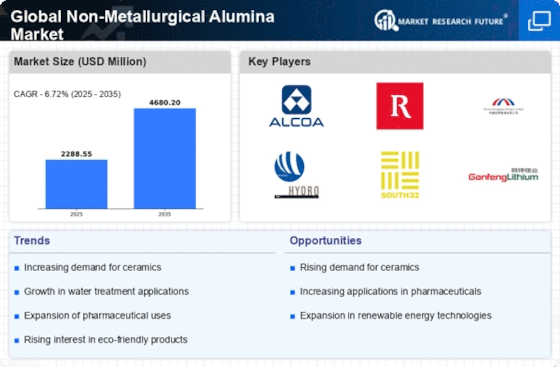
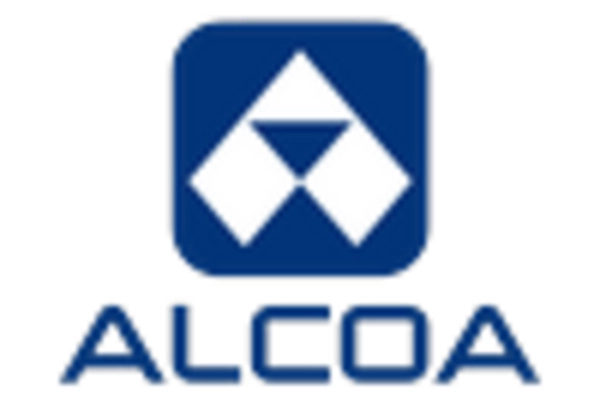
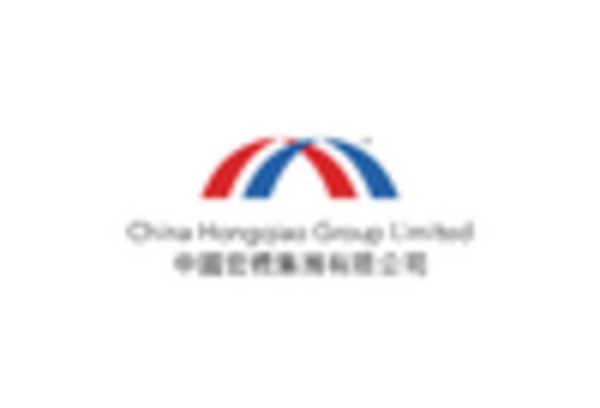
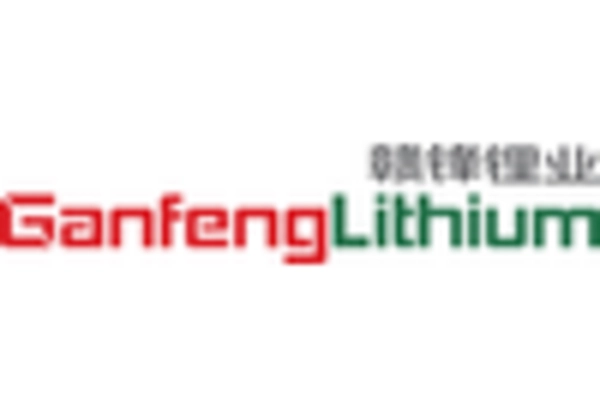
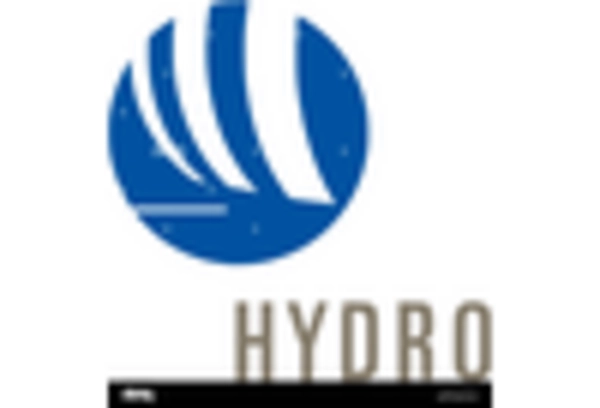
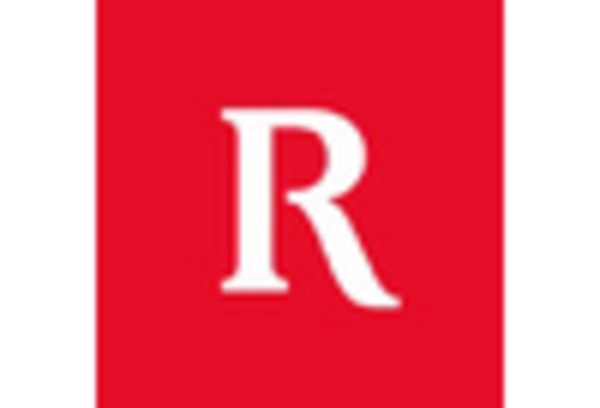
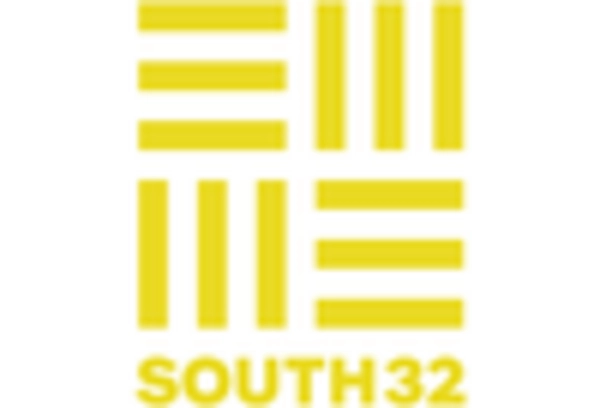









Leave a Comment